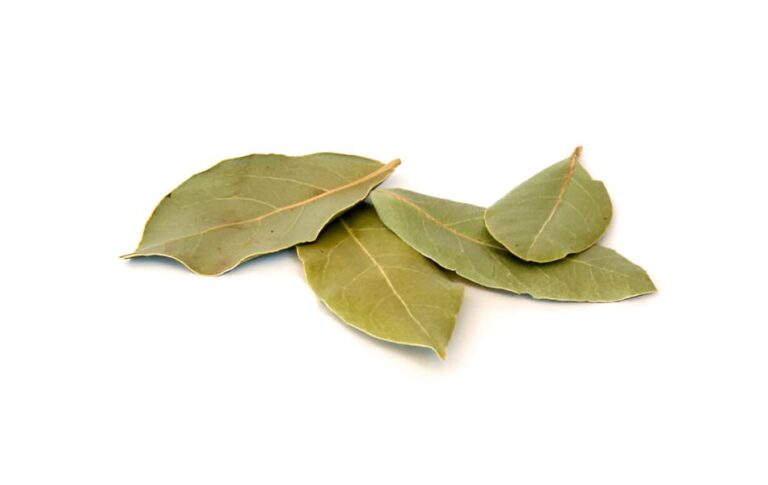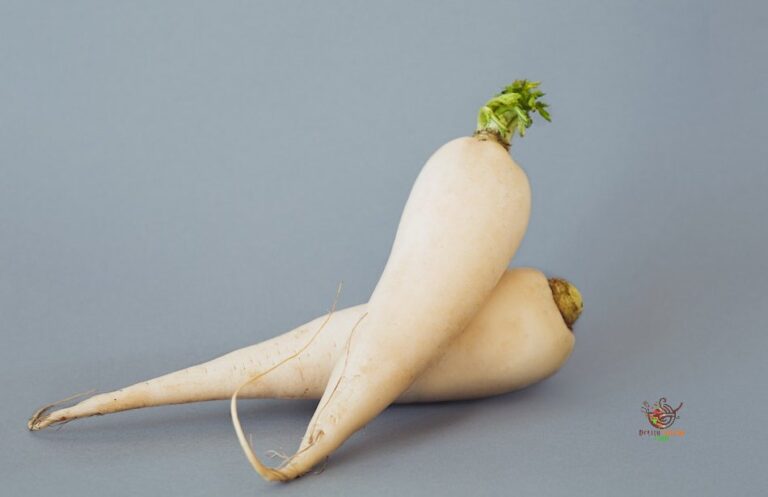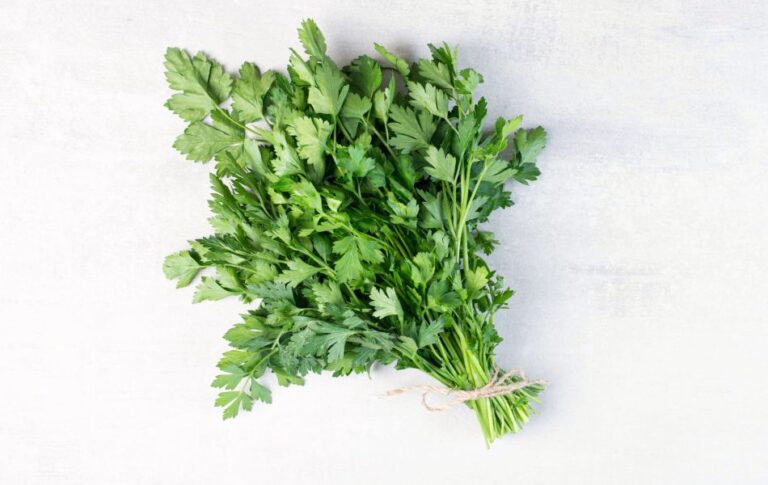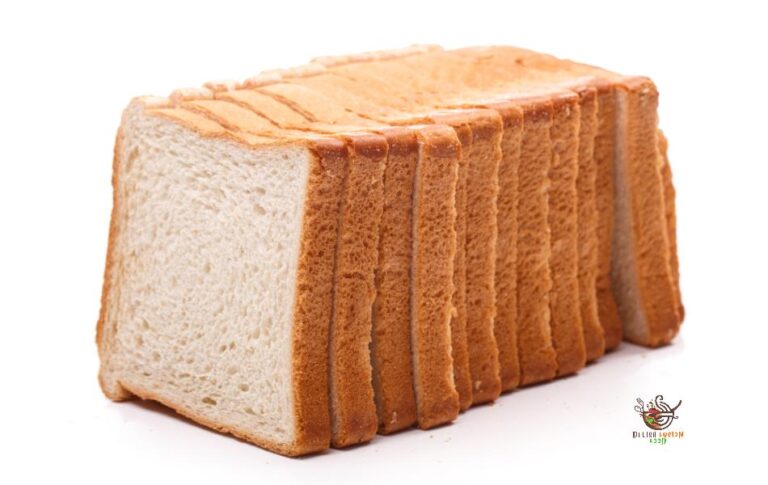Top Green Tea Substitutes for a Healthy Lifestyle
Green tea is often considered very good for you because it has lots of helpful stuff called antioxidants. These antioxidants can do good things for your health and even make your skin look better. However, some people don’t like the taste of green tea because it can taste a bit like grass.
If you don’t like how green tea tastes, you might wonder, “Can I drink something else instead?” Good news, there are many other healthy options besides green tea.
Best Alternatives to Green Tea
When replacing green tea, people often turn to other varieties of tea. Many people mistakenly believe that all teas have a uniform taste, but, in reality, bitterness, and astringency can vary significantly among them. Moreover, many of these green tea substitutes come with added flavorings.
We all enjoy spicing up our tea selections now and then. It’s not just about taste; we often seek additional or distinct health benefits that different teas can provide. So, I’ve undertaken a quest to identify the finest green tea alternatives, grouped into various categories:
- Low-Caffeine Choices: Green rooibos tea, and white tea.
- Weight Management: Oolong tea, chamomile tea, dandelion tea, and rose tea.
- Detoxifying Options: Ginger tea, turmeric tea, lemon tea, and peppermint tea.
- Anti-Aging Picks: Rooibos tea and tulsi tea.
- Metabolism Boosters: Yerba Mate.
Black Tea
Black tea is a fully oxidized tea variety, known for its deep reddish-brown to dark brown brew. It’s the preferred choice in the Western world and boasts about 40-60 milligrams of caffeine per 8-ounce cup.
Derived from the Camellia Sinensis plant, the same source as green, white, and oolong teas, black tea distinguishes itself with a more robust and bitter flavor, often enjoyed with milk by many. Being the most processed variant of the Camellia Sinensis plant, black tea assumes its darker color and pronounced bitterness.
Black tea, especially without sugar, provides numerous health benefits. The richness in flavor and higher caffeine content make it an attractive choice. Here are some of the well-known benefits of black tea:
-
- It has antioxidants that are good for your health.
- It can be good for your heart because it contains flavonoids.
- It may help lower bad cholesterol and reduce high blood pressure.
- It can also help control blood sugar levels and prevent diabetes.
- Black tea can make you feel more alert, just like coffee.
Black tea is both a delightful beverage and a source of numerous health benefits, making it an excellent choice for enthusiasts.
White Tea
White tea is the least processed variant of the Camellia Sinensis plant, featuring a lighter color and a subtle, hay-like flavor. It holds similarities to green tea in health benefits but offers a milder taste and slightly higher caffeine content.
Health Benefits of White Tea:
-
- Rich in antioxidants, promoting overall well-being.
- Good for your heart and immune system.
- Aids in weight loss by burning fat effectively.
- Lowers the risk of insulin problems.
- Nourishes and promotes clear, healthy skin.
Herbal tea
Herbal tea is distinct from traditional tea as it doesn’t originate from the Camellia sinensis plant. It serves as a caffeine-free beverage choice. It’s renowned for its ancient history, often enjoyed as a post-dinner drink.
The health benefits of herbal tea are diverse and remarkable:
-
- Rapid relief from cold symptoms.
- Excellent for digestive health, alleviating upset stomach issues.
- Immune-boosting prowess.
- Anti-inflammatory effects guarding against arthritis.
- Stress and anxiety reduction due to its soothing effects.
- Beneficial for skin health, aiding in addressing signs of aging and overall skin well-being.
- Herbal infusions offer diverse health benefits, from addressing indigestion to allergies and insomnia, with endless infusion possibilities and a complete absence of caffeine.
Oolong Tea
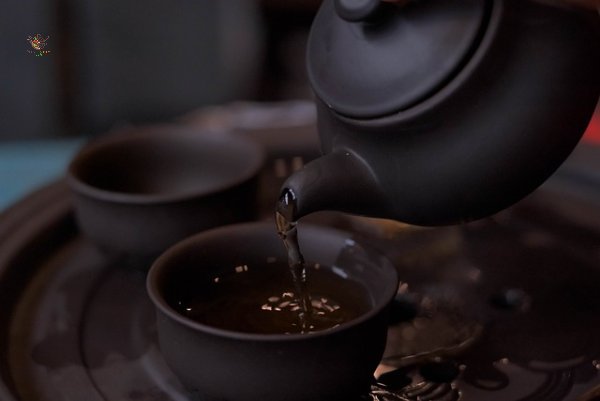
Oolong tea, a semi-oxidized tea variety, bridges the gap between green and black teas, offering the robustness of black tea coupled with the freshness of green tea. Highly favored by connoisseurs, oolong teas originate from China and Taiwan.
Here are some notable health benefits of oolong tea:
-
- Diabetes prevention due to its antioxidants lowers blood sugar and insulin levels.
- Enhanced heart health support.
- Effective weight management through fat-burning enzyme activation.
- Improved nervous system function and heightened alertness.
- Promotion of strong bones and teeth, thanks to its antioxidant content.
Chamomile Tea
Chamomile tea is a suitable bedtime substitute for green tea. While most studies on chamomile tea have focused on extracts and alternative uses, research on postpartum depression and insomnia in women showed reduced symptoms after four weeks.
Health Benefits:
-
- Eases Stress and Anxiety
- Exhibits Anti-Inflammatory, Antioxidant, and Antibacterial Properties
- Offers Relief from Premenstrual Syndrome (PMS)
- May Help Prevent Osteoporosis
- Assists in Regulating Insulin Levels
Chai Tea
Chai tea is a blend of spices like cardamom, cloves, cinnamon, pepper, and black tea, available in various versions including those with added turmeric, vanilla, and other teas. Tailor your chai tea choice to suit your taste.
Health Benefits:
-
- Promotes Heart Health
- Enhances Digestive Function
- Strengthens the Immune System
- Beneficial for Skin Health
- Reduces Inflammation
- Supports Cognitive Health
- Alleviates Headaches, Sore Throats, Nausea, and Menstrual Pain
Ginger Tea
Ginger tea, renowned for its ability to soothe upset stomachs, offers a multitude of health benefits, making it a versatile choice.
Health Benefits:
-
- Eases Motion Sickness and Associated Symptoms
- Enhances Heart Health
- Reduces High Blood Pressure
- Aids in Diabetes Prevention by Lowering Blood Sugar Levels
- Supports Weight Loss by Promoting Satiety and Reducing Hunger
Lemon Balm Tea
Lemon balm tea, a soothing alternative to green tea, offers relaxation benefits for both day and bedtime.
Health Benefits:
-
- Promotes Relaxation and Eases Anxiety and Insomnia
- Rich in Antioxidants, aiding in combating free radicals
- Has the Potential to Reduce Inflammation
- May Alleviate Muscle Pain
- Refreshing with a slight citrus flavor, offering a delightful sensory experience
Rooibos Tea
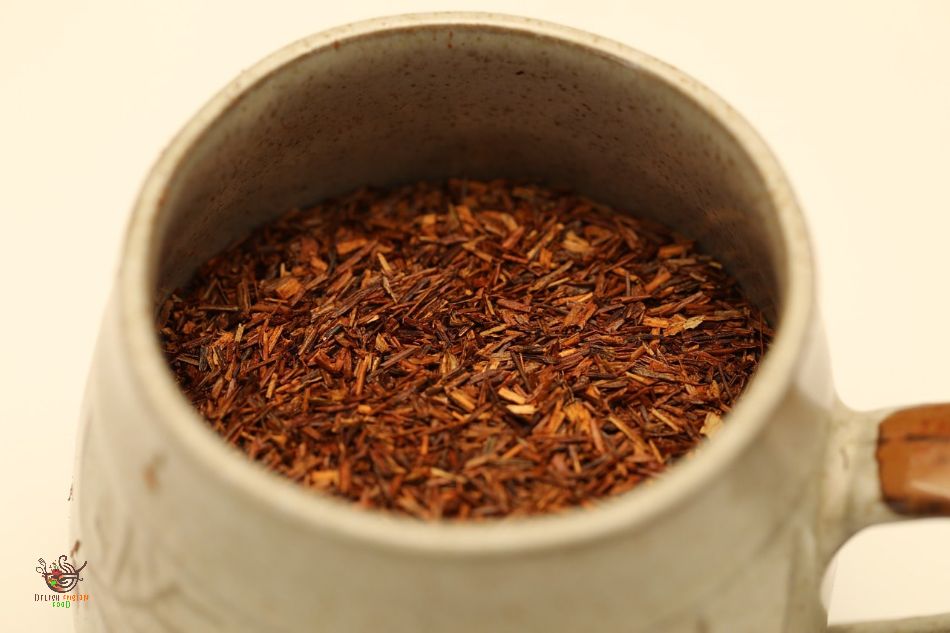
Rooibos tea, native to South Africa’s Cedarburg mountain region, is a naturally caffeine-free herbal tea known as red bush tea due to its red hue. Its naturally sweet taste, absence of bitter tannins, and caffeine-free nature make it suitable for all ages.
Health Benefits:
-
- Hydrating and Refreshing
- Kidney Stone Prevention (low oxalic acid content)
- Rich in Essential Minerals: Copper, Iron, Potassium, Calcium, Fluoride, Zinc, Manganese, Magnesium
- Supports Healthy Skin (contains alpha-hydroxy)
- Nervous System Support (contains magnesium)
- Antioxidant-rich (ideal for pregnant and lactating women)
Yerba Mate Tea
Yerba Mate tea, a traditional and medicinal beverage with ancient roots, originated from the Guarani Indians in South America. It’s derived from the holly plant and offers a range of flavors from earthy to grassy.
Health Benefits:
-
- Natural Stimulant (approximately 35mg of caffeine per 8 oz. serving)
- Appetite Suppressant
- Rich in Vitamin C, Potassium, Magnesium, and Manganese
- Contains Xanthines (related to caffeine) and “Mateine”
- Promotes Alertness and Focus without Coffee’s Negative Side Effects
- May Relax Smooth Muscle Tissues, Avoiding Central Nervous System Stimulation
Pu’erh Tea
Pu’erh tea, highly esteemed in Asia for its aged and fermented nature, holds various medicinal advantages, from alleviating hangovers to lowering cholesterol levels.
Health Benefits:
-
- Aged and Fermented for Enhanced Flavor and Medicinal Properties
- Smooth Taste, Potentially Darker Than Black Tea
- Contains Caffeine: Black Pu’erh (60-70mg per 8 oz cup), Green Pu’erh (30-40mg per 8 oz cup)
- Digestive Aid, Helps Cut Grease and Promotes Salivation
- Assists in Alcohol Dispersal and Refreshes the Mind
- Lowers Triglyceride and Cholesterol Levels in the Body
Hibiscus Tea
Hibiscus tea, a naturally caffeine-free option, offers excellent hydration and several health advantages.
Health Benefits:
-
- Promising in Treating High Blood Pressure
- Potential for Lowering High Cholesterol Triglyceride Levels
- Rich in Vitamin C and Antioxidants for Immune Support
See Also – Discover the Best Coffee Extract Alternatives for Delicious Recipes
Frequently Asked Questions
Q. Can water be a replacement for green tea?
Yes, excessive consumption of green tea can have adverse health effects.
Q. Which is more effective for weight loss, water, or green tea?
Green tea is more conducive to weight loss.
Q. Is lemon tea comparable to green tea in terms of benefits?
Lemon tea also offers weight loss benefits and can be equally advantageous.


